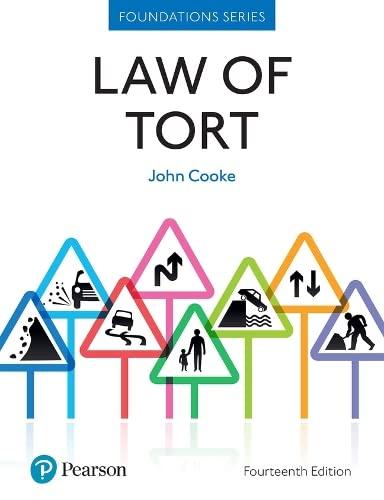Question
Facts .While hunting on unposted and unoccupied property in Oceola Township, Michigan, Duane Willsmore noticed an area with branches arranged in a crisscross pattern. When
Facts.While hunting on unposted and unoccupied property in Oceola Township,
Michigan, Duane Willsmore noticed an area with branches arranged in a crisscross pattern.
When he kicked aside the branches and sod, he found a watertight suitcase in a freshly dug
hole. Willsmore informed the Michigan State Police of his find. A state trooper and
Willsmore together pried open the suitcase and discovered $383,840 in cash. The state
police took custody of the money, which was deposited in an interest-bearing account.
Michigan's "Lost Goods Act" provides that the finder and the township in which the
property was found must share the value of the property if the finder publishes required
notices and the true owner does not claim the property within one year.
Willsmore published the required notices and brought a declaratory judgment action
seeking a determination of the ownership of the money. Thomas Powell, the owner of the
land on which the suitcase was found, claimed he was the owner of the suitcase. After
Powell incorrectly named the amount of money in the suitcase, he asserted his Fifth
Amendment right not to testify at his deposition and at trial. The trial court awarded the
money equally to Willsmore and the Township of Oceola. Powell appealed.
1.Do estray statutes serve a useful social purpose? Explain.
2.If you had found the suitcase, would you have turned it in to the government?
3.Should the government be entitled to half the find? Explain.
Step by Step Solution
There are 3 Steps involved in it
Step: 1

Get Instant Access to Expert-Tailored Solutions
See step-by-step solutions with expert insights and AI powered tools for academic success
Step: 2

Step: 3

Ace Your Homework with AI
Get the answers you need in no time with our AI-driven, step-by-step assistance
Get Started


